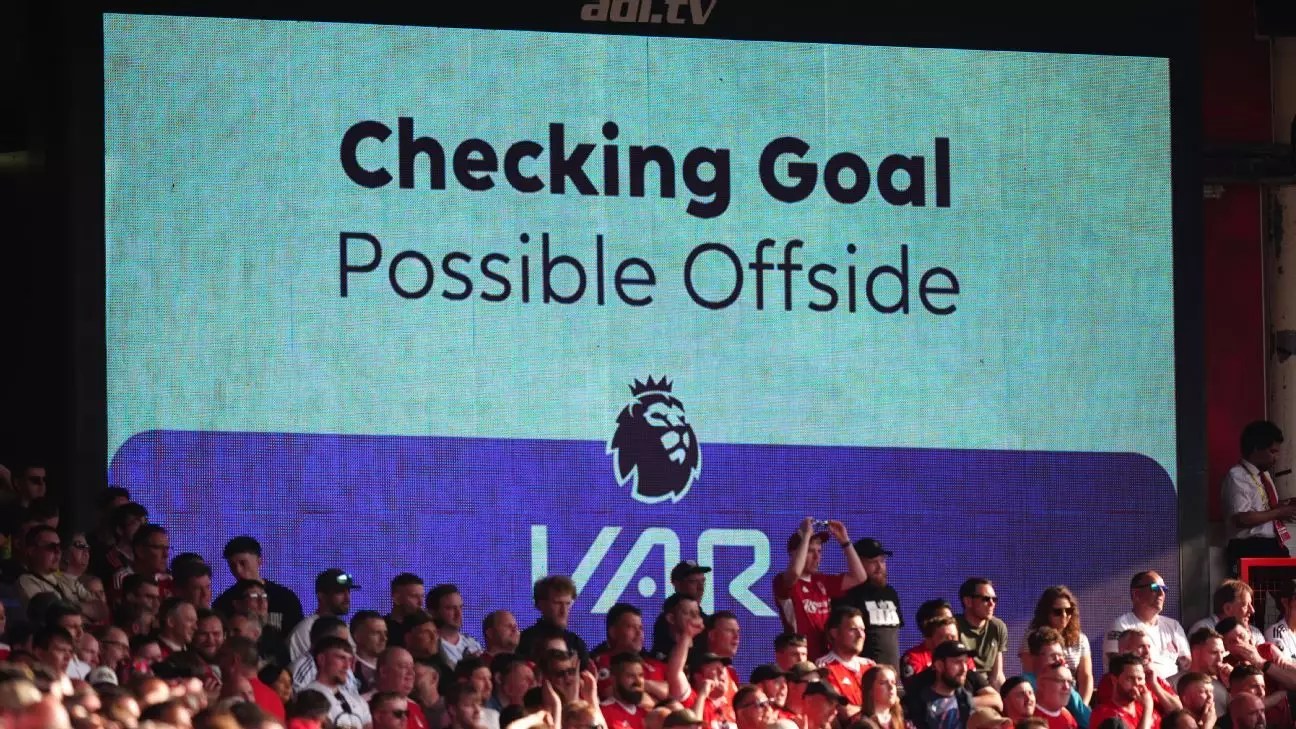Reports suggest that Wolverhampton Wanderers’ attempt to have VAR removed from the Premier League has little to no chance of success. The bid to eliminate VAR from the league starting in the 2024/25 season faces significant opposition. Sources indicate that only a small minority of clubs are in favor of scrapping the system, making it unlikely to even reach the voting stage during the end-of-season AGM.
Clubs that are accustomed to VAR from their participation in European competitions are not inclined to support the elimination of the system in the Premier League. Despite persistent concerns about the implementation of VAR, many believe that it serves as a safety net against incorrect on-field decisions. The argument is that the benefits of having VAR, such as correcting refereeing mistakes, outweigh the drawbacks. Although there were instances of errors associated with VAR last season, the technology has also successfully rectified numerous decisions, which is seen as a positive outcome.
While there have been criticisms about the lengthy checks and delays caused by VAR, the Premier League has expressed its commitment to the system. Efforts are being made to enhance the processes and reduce errors associated with VAR. The introduction of increased communications roles at Stockley Park and the proposed implementation of referees explaining VAR decisions to the crowd are steps towards improving transparency and understanding among fans. Additionally, the approval for referees to utilize pitchside monitors for overturning subjective decisions aims to address concerns about the lack of clarity in VAR rulings.
In addition to VAR, clubs have voted to introduce semiautomated offside technology (SAOT) in the upcoming season, partnering with a new supplier, Second Spectrum. The objective of SAOT is to expedite offside decisions by eliminating the human element in drawing offside lines on players. However, there are concerns about the potential increase in marginal offside calls due to the absence of a built-in tolerance level in SAOT. While the technology is expected to enhance decision-making, it may still face challenges in situations involving multiple players in close proximity.
Second Spectrum, the provider of the Premier League’s tracking data, will utilize AI-powered skeletal tracking technology for SAOT. This innovation marks a significant step towards improving the accuracy and efficiency of officiating in the league. Despite advancements in technology, discussions about the use of foreign referees or the inclusion of ball-chip technology similar to the FIFA World Cup have not been scheduled. The introduction of new technological solutions, such as SAOT, underscores the Premier League’s ongoing efforts to modernize and enhance the quality of refereeing in the competition.
While there are concerns and criticisms surrounding VAR in the Premier League, the likelihood of its removal remains slim. The focus remains on improving the existing system through enhancements and the introduction of new technologies like SAOT. As the league continues to evolve, the integration of advanced technologies is expected to play a crucial role in shaping the future of officiating and decision-making in English football.


Leave a Reply